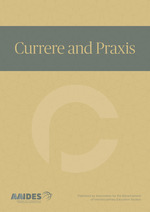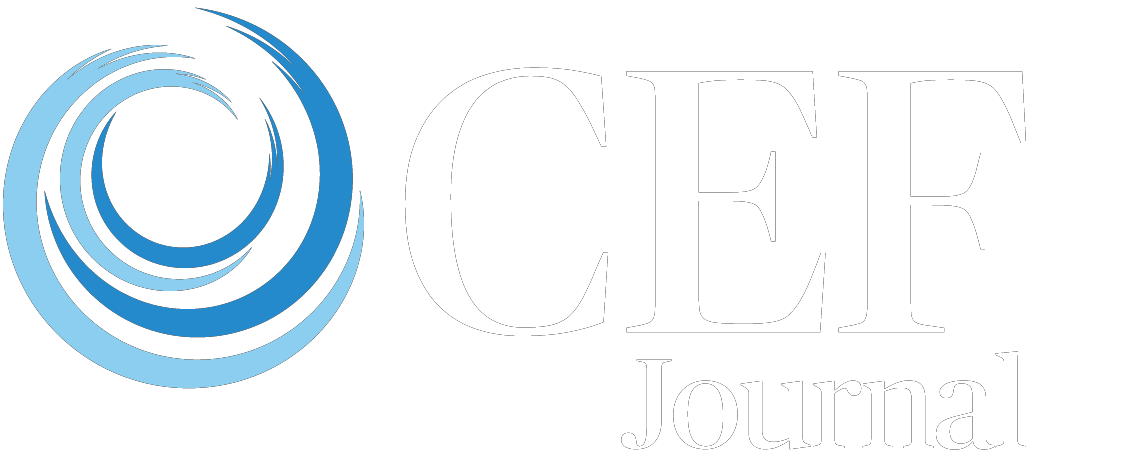Examining English teachers’ perspectives on competency levels in technopedagogical education
DOI:
https://doi.org/10.5281zenodo.10185818Keywords:
Instructional technology, technopedagogy, English teachersAbstract
This study aimed at analyzing English teachers’ technopedagogical education competence in Türkiye. This study was carried out as a quantitative design and survey model study. Within the scope of the study, the data collected from 218 English teachers were evaluated. This sample was chosen through the convenience sampling method among the teachers in the population. With the purpose of identifying the technopedagogical levels of English teachers, the “Technopedagogical Content Knowledge Scale” was used in the study. In the analysis of the data, descriptive statistics, frequency, percentage, average, Kruskal Wallis, Mann Whitney U tests were used. As a result of the study, it was determined that English teachers’ technopedagogical education level is “Advanced”. A significant difference was determined in Technopedagogical education competencies according to various personal characteristics of teachers. Within the scope of the research, it is recommended that future research should be carried out in-depth studies on the reasons why English teachers' technopedagogical education competency levels are high.
References
Bağra, A., & Kılınç, H. H. (2022). Öğretmenlerin teknopedagojik eğitim yeterlikleri ve bilişim teknolojisi destekli materyal tasarlama ve kullanma yeterliklerinin incelenmesi (Unpublished master's thesis). Hacı Bektaş University, Nevşehir.
Basal, A. (2015). The implementation of a flipped classroom in foreign language teaching. Turkish Online Journal of Distance Education, 16(4), 28-37.
Çelikkaya, T. (2017). Formasyon dersi alan tarih öğretmen adaylarının öğretim teknolojisi ve materyal tasarımı dersine ilişkin görüşleri. Adıyaman Üniversitesi Sosyal Bilimler Enstitüsü Dergisi, 25, 20-52.
Chun, D., Kern, R., & Smith, B. (2016). Technology in language use, language teaching, and language learning. The Modern Language Journal, 100(S1), 64-80.
Erbaş, M. K., & Ünlü, H. (2017). Beden eğitimi öğretmen adaylarının tekno-pedagojik eğitim yeterliklerinin incelenmesi. 26th International Conference on Educational Sciences, Antalya, Türkiye.
Igbinosa, V. O. (2023). A comparative study of computed aided learning and traditional teaching method on the understanding of linear and quadratic functions in mathematics. International Journal of Educational Research, 12(1), 96-106.
Karamustafaoğlu, O. (2006). Fen ve teknoloji öğretmenlerinin öğretim materyallerini kullanma düzeyleri: Amasya ili örneği. Atatürk Üniversitesi Bayburt Eğitim Fakültesi Dergisi, 1(1), 90-101.
Karasu, F. (2019). Türk dili ve edebiyatı öğretmenlerinin teknopedegojik alan bilgisi (tpab) yeterliliklerinin çeşitli değişkenler bakımından incelenmesi (Unpublished master’s thesis). Atatürk University, Erzurum.
Kartal, E. (2005). Bilişim-iletişim teknolojileri ve dil öğretim endüstrisi. Eğitim Fakültesi Dergisi, 18(2), 383-393.
Kaya, M. T. (2019). Sosyal bilgiler öğretmenlerinin teknopedagojik eğitim yeterlilikleri ve akıllı tahta öz-yeterliklerinin incelenmesi: Afyonkarahisar örneği (Unpublished master’s thesis). Afyon Kocatepe University, Afyon.
Keleş, H. (2019). Sosyal bilgiler öğretmenlerinin teknopedagojik alan bilgisi yeterlilikleri ve web 2.0 teknolojileri hakkında görüşlerinin incelenmesi (Unpublished master's thesis). Aksaray University, Aksaray.
Kimav, A. U. (2019). İngilizce öğretiminde teknopedagojik becerileri geliştirmeye yönelik harmanlanmış bir hizmet içi eğitim programı tasarısı (Unpublished doctoral dissertation). Anadolu University, Eskişehir.
Kocaoğlu, B. Ü., & Akgün, Ö. E. (2015). Lise öğretmenlerinin Fatih projesi teknolojilerini kullanmaya yönelik öz-yeterlik inançları. Uluslararası Eğitim Bilimleri Dergisi, 4, 259-276.
Koehler, M. J., & Mishra, P. (2005). What happens when teachers design educational technology? The development of technological pedagogical content knowledge. Journal of Educational Computing Research, 32(2), 131-152.
Martinovic, D., & Zhang, Z. (2012). Situating ICT in the teacher education program: Overcoming challenges, fulfilling expectations. Teaching and Teacher Education, 28(3), 461-469.
Özgün-Koca, S. A., Meagher, M., & Edwards, M. T. (2011). A teacher’s journey with a new generation handheld: Decisions, struggles, and accomplishments. School Science and Mathematics, 111(5), 201-224.
Sağlam-Kaya, Y. (2019). Öğretmen adaylarının teknopedagojik eğitim yeterliklerinin çeşitli değişkenler ve öğretmen öz yeterlikleri bağlamında incelenmesi. Journal of Theoretical Educational Science, 12(1), 185-204.
Schmidt, D. A., Baran, E., Thompson, A. D., Mishra, P., Koehler, M. J., & Shin, T. S. (2009). Technological pedagogical content knowledge (TPACK) the development and validation of an assessment instrument for preservice teachers. Journal of Research on Technology in Education, 42(2), 123-149.
Solmaz, İ. (2019). Öğretmenlerin bireysel yenilikçilik düzeyleri ile teknopedagojik eğitim yeterlikleri arasındaki ilişki (Unpublished Doctoral dissertation). Sakarya Universitesi, Sakarya.
Swallow, M. J., & Olofson, M. W. (2017). Contextual understandings in the TPACK framework. Journal of Research on Technology in Education, 49(3-4), 228-244.
Topaloğlu, S. (2008). Bilgi teknolojisi sınıflarının kullanımına yönelik öğretmen tutumları: adapazarı örneği (Unpublished Doctoral dissertation). Sakarya Universitesi, Sakarya.
Turan, Z. A. (2018). İngilizce öğretmenlerinin mesleki öz-yeterlik algıları ve tercih ettikleri yabancı dil öğretim yöntemlerinin incelenmesi (Unpublished doctoral dissertation). Adıyaman University, Adıyaman.
Voogt, J., & McKenney, S. (2017). TPACK in teacher education: Are we preparing teachers to use technology for early literacy?. Technology, Pedagogy and Education, 26(1), 69-83.
Yılmaz, G. K. (2015). Türkiye’deki teknolojik pedagojik alan bilgisi çalışmalarının analizi: bir meta-sentez çalışması. Eğitim ve Bilim, 40(178), 103-122
Young, J. R., Young, J., Hamilton, C., & Pratt, S. S. (2019). Evaluating the effects of professional development on urban mathematics teachers TPACK using confidence intervals. REDIMAT, 8(3), 312-338.
Yurdakul, İ. K. (2011). Öğretmen adaylarının teknopedagojik eğitim yeterliklerinin bilgi ve iletişim teknolojilerini kullanımları açısından incelenmesi. Hacettepe Üniversitesi Eğitim Fakültesi Dergisi, 40(40), 397-408.
Downloads
Published
How to Cite
Issue
Section
License
Copyright (c) 2023 Association for the Advancement of Interdisciplinary Education Studies

This work is licensed under a Creative Commons Attribution-NonCommercial-NoDerivatives 4.0 International License.













